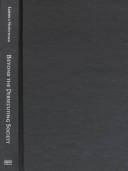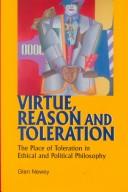| Listing 1 - 10 of 117 | << page >> |
Sort by
|
Book
Year: 1964 Publisher: Paris Bruges Desclée De Brouwer
Abstract | Keywords | Export | Availability | Bookmark
 Loading...
Loading...Choose an application
- Reference Manager
- EndNote
- RefWorks (Direct export to RefWorks)
Egypt --- Gewetensvrijheid --- Godsdienstvrijheid --- Liberté de conscience --- Liberté religieuse --- 261.7
Book

Year: 1967 Publisher: Tielt Den Haag Lannoo
Abstract | Keywords | Export | Availability | Bookmark
 Loading...
Loading...Choose an application
- Reference Manager
- EndNote
- RefWorks (Direct export to RefWorks)
Godsdienst --- Egypt --- Gewetensvrijheid --- Liberté de conscience --- 261.7 (082)
Book
Year: 1967 Publisher: Bruxelles Paris La Pensée catholique Office général du livre
Abstract | Keywords | Export | Availability | Bookmark
 Loading...
Loading...Choose an application
- Reference Manager
- EndNote
- RefWorks (Direct export to RefWorks)
Godsdienst --- Egypt --- Gewetensvrijheid --- Liberté de conscience --- 261.7
Book
ISBN: 9781409436010 9781315255019 9781351935760 1409436012 Year: 2013 Volume: 2 Publisher: Burlington Ashgate
Abstract | Keywords | Export | Availability | Bookmark
 Loading...
Loading...Choose an application
- Reference Manager
- EndNote
- RefWorks (Direct export to RefWorks)
The essays and articles selected for this volume analyze what is generally understood by freedom of religion and belief in today’s world. The different aspects of this fundamental right are considered from the contents of freedom of religion, to the possible limitations of this freedom; and from the freedom of, or freedom from, conundrum to the question of the collective or individual right. This volume reflects legal, philosophical and international perspectives, addresses numerous unanswered questions and offers an effective overview of the current literature and debate in this aspect of the discipline of law and religion
Human rights --- 342.731 --- 348.7 --- Vrijheid van godsdienst. Gewetensvrijheid --- Canoniek staatsrecht --- 348.7 Canoniek staatsrecht --- 342.731 Vrijheid van godsdienst. Gewetensvrijheid --- Religion and law --- Freedom of religion

ISBN: 0812215672 081223331X 0812205863 128389629X Year: 1998 Publisher: Philadelphia University of Pennsylvania Press
Abstract | Keywords | Export | Availability | Bookmark
 Loading...
Loading...Choose an application
- Reference Manager
- EndNote
- RefWorks (Direct export to RefWorks)
There is a myth—easily shattered—that Western societies since the Enlightenment have been dedicated to the ideal of protecting the differences between individuals and groups, and another—too readily accepted—that before the rise of secularism in the modern period, intolerance and persecution held sway throughout Europe. In Beyond the Persecuting Society John Christian Laursen, Cary J. Nederman, and nine other scholars dismantle this second generalization.If intolerance and religious persecution have been at the root of some of the greatest suffering in human history, it is nevertheless the case that toleration was practiced and theorized in medieval and early modern Europe on a scale few have realized: Christians and Jews, the English, French, Germans, Dutch, Swiss, Italians, and Spanish had their proponents of and experiments with tolerance well before John Locke penned his famous Letter Concerning Toleration. Moving from Abelard to Aphra Behn, from the apology for the gentiles of the fourteenth-century Talmudic scholar, Menahem ben Solomon Ha-MeIiri, to the rejection of intolerance in the "New Israel" of the Massachusetts Bay Colony, Beyond the Persecuting Society offers a detailed and decisive correction to a vision of the past as any less complex in its embrace and abhorrence of diversity than the present.

ISBN: 0748612440 Year: 1999 Publisher: Edinburgh Edinburgh university press
Abstract | Keywords | Export | Availability | Bookmark
 Loading...
Loading...Choose an application
- Reference Manager
- EndNote
- RefWorks (Direct export to RefWorks)
Book
ISBN: 2728905711 9782728905713 Year: 1993 Publisher: Paris Mame
Abstract | Keywords | Export | Availability | Bookmark
 Loading...
Loading...Choose an application
- Reference Manager
- EndNote
- RefWorks (Direct export to RefWorks)
Book
ISBN: 9780199684229 0199684227 Year: 2015 Publisher: Oxford Oxford University Press
Abstract | Keywords | Export | Availability | Bookmark
 Loading...
Loading...Choose an application
- Reference Manager
- EndNote
- RefWorks (Direct export to RefWorks)
Book
ISBN: 9789462369139 9462369135 Year: 2019 Publisher: The Hague Eleven International
Abstract | Keywords | Export | Availability | Bookmark
 Loading...
Loading...Choose an application
- Reference Manager
- EndNote
- RefWorks (Direct export to RefWorks)
In pluralist societies, corporate religious freedom might conflict with other fundamental rights. Corporate piety might collide with LGBT rights, notably when a company?s management does not accept, either as employees or clients, individuals whom it believes to have ?sinful? sexual orientations. Secular companies may want to keep religion out of the workplace altogether, thus affecting individual religious freedom of employees.00In this contribution, Jeroen Temperman engages with such expressions of corporate religion, addressing among other questions whether companies may indeed be deemed ?religious? under international human rights standards ? hence whether companies can claim religious freedom ? and if so, what the scope of such a freedom is, particularly when the rights of others are affected by such corporate manifestations of religion.0.
Book
ISBN: 9789042924833 Year: 2012 Publisher: Leuven Paris Walpole, MA Peeters
Abstract | Keywords | Export | Availability | Bookmark
 Loading...
Loading...Choose an application
- Reference Manager
- EndNote
- RefWorks (Direct export to RefWorks)
| Listing 1 - 10 of 117 | << page >> |
Sort by
|

 Search
Search Feedback
Feedback About UniCat
About UniCat  Help
Help News
News